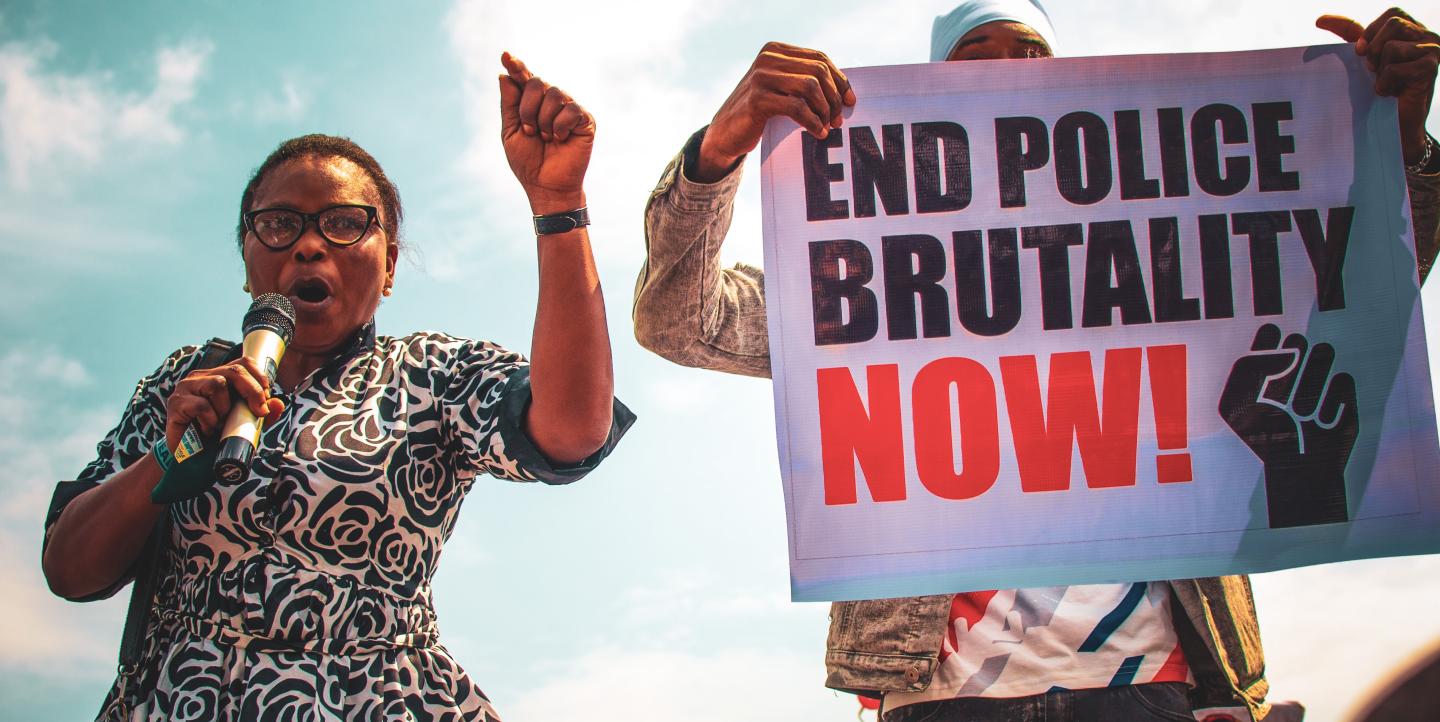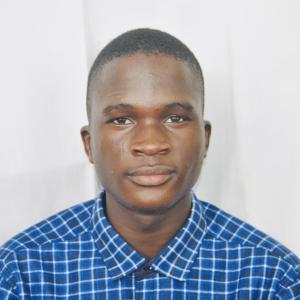Police killings have been on the rise in Nigeria for over two decades. Since 2000, the country’s police force has shot and killed more than 8,000 citizens, either intentionally or by accident, according to Human Rights Watch. In 2016, the World Internal Security and Police Index deemed the country's police the "worst in the world.”
In October 2020, young Nigerians began protesting against the police’s Special Anti-Robbery Squad, alleging that they kidnapped, raped, extorted and harrassed people, and that the government never intervened. In Lagos State, the Nigerian army reportedly killed and injured many of these protesters.
“The Nigerian government and the police have failed from time to time to protect peaceful protesters whereas this should be their number one priority. If the [protesters’] protection had already been guaranteed, it would not have escalated into extra-judicial killings,” said Ridwan Oke, a Lagos-based lawyer and human rights activist.
Determined to find a way to spotlight these injustices, investigative journalist Abdullah Tijani founded the Liberalist Centre for Education in 2021. Through the center, Tijani trains reporters on how to conduct what he calls pro-freedom reporting, which seeks to protect the civil rights of individuals in a bid to ensure a more just and democratic society.
“The center started one year after the #EndSars protest when I saw that nothing had changed and the abuse did not cease. When Nigerians came out to mark the killings of their brothers and sisters who stood up for freedom and justice, their actions motivated me [to create] a platform dedicated to speaking [out] against brutality, government excessiveness, and in defense of freedom,” he said.
Tijani launched a fellowship program under the center last October through which notable journalists and social justice advocates train early-career reporters on how to cover and prioritize human rights issues in their coverage. Participants also learn about data and investigative journalism, how to secure sources, and practical tips to improve their reporting.
The center offers micro-grants to finance fellows’ work on their stories. After fellows complete the training, their reporting is published by the center’s media outlet, The Liberalist. The outlet has published more than 200 articles since 2021, covering the government’s abuse of power and using a human interest angle to promote accountability, economic freedom and human rights.
“I have been able to gain a lot of experiences from experts on what journalism for liberty entails. The training was eye-opening [for] me because I didn’t know what pro-freedom reporting really meant before the fellowship,” said Egwu Linus, one of the center’s Fellows. Applying what he learned during the training, Linus was able to publish an investigative piece at the beginning of the year, in which he exposed the irregularities of Nigeria's electricity distribution company.
After taking part in the training, Favour Adeboye, a senior at Kwara State University, wrote a story that highlighted how her state government failed to embark on the construction of a road in her local community.
“I always had a flair for underreported issues, [but] it was this fellowship that took me through the path of professionalism on how to cover pro-freedom ideas. It spurred me to get the story idea and shaped [me] to write it more carefully and accurately,” said Adeboye. “Now, I had the yearning to write endlessly in defense of liberty because the training gave me a muse to write investigative stories.”
Another fellow, Muhammad Adamu, wrote a piece on the harrowing consequences of the Nigerian police force’s brutality on World Press Freedom Day. “The Nigerian media cannot thrive if the police are brutal towards the voices [journalists] of the masses,” he said.
Challenges
Sustainability and funding is a primary challenge for the Liberalist Centre.
“We rely solely on volunteer and part-time staff but since inception, we have not generated any revenue or secured a grant to pay these works even if it is just to appreciate their efforts. So far, the grants we received are for the execution of our fellowship and not to run the organization [as a whole],” said Tijani.
Another obstacle is getting word out about the outlet. “Our outlet is competing with other platforms that have existed for more than a decade so to gain a new ground in the media space is a challenge,” he said. “To ensure that we get this visibility, we are still competing with them.”
One way Tijani is planning to draw out the competition is with his podcast, Voice of Reasoning.
“I want the platform to lead when it comes to pro-freedom reporting, I want it to spread over Africa because obnoxious policy on human rights affects the whole continent. I want it to inspire others to cover freedom because we need to do more,” he said.
Photo by Tope. A Asokere on Unsplash.


